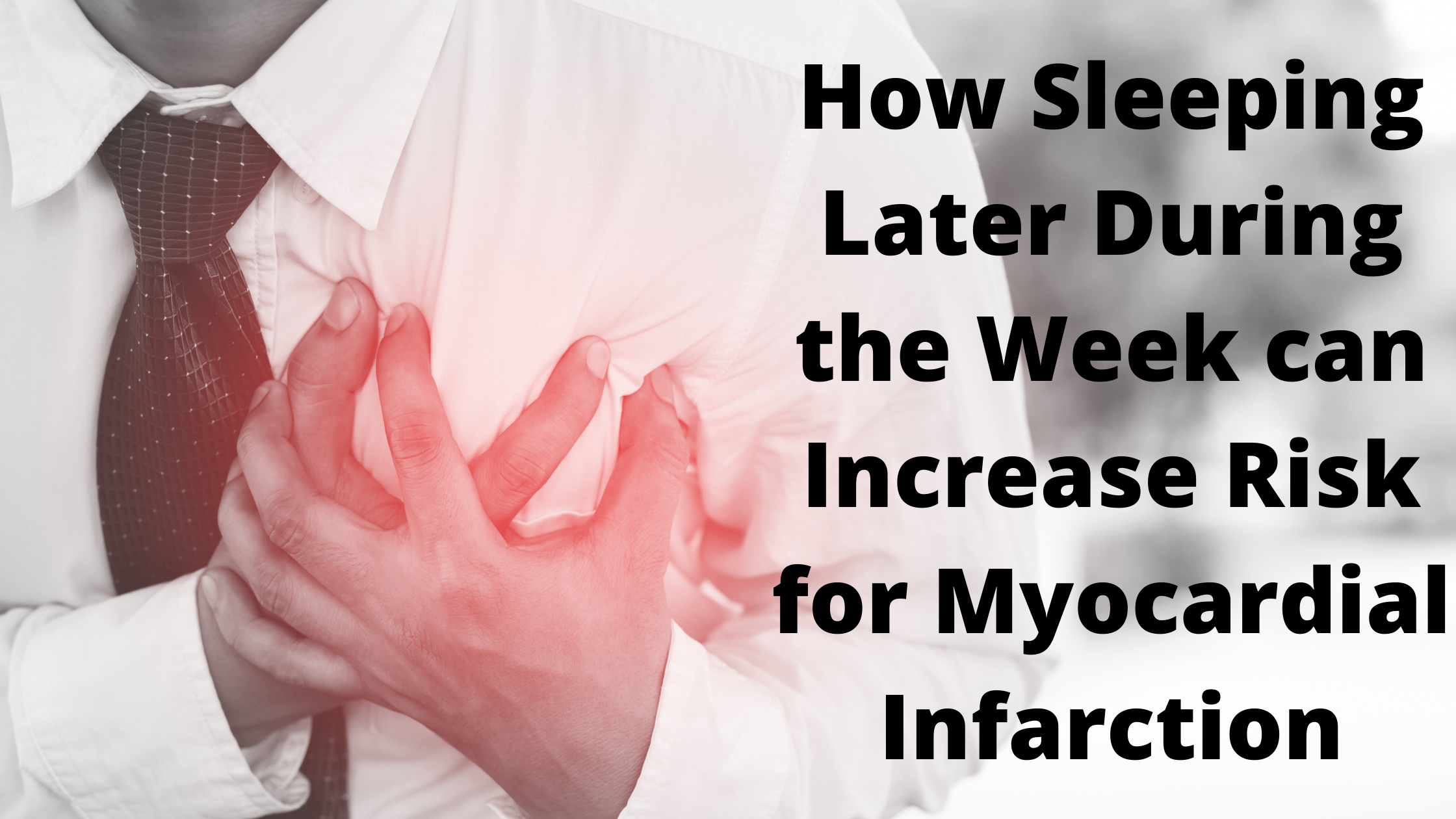
As we age, our circadian rhythm changes which can impact what time we need to go to sleep. The older we get, the earlier we are supposed to go to bed for an earlier wake time. This is due to many factors including changing eyesight (which can make us less sensitive to changes in light during the day), changing levels of melatonin, and other brain functions or hormone changes.
Research has supported the link between sleeping and health issues, including cardiovascular health disease. A recent study looked at bedtime and risk for myocardial infarction, or heart attack. Continue reading to find out more about this relationship and the relationship between sleep and heart health in general.
Circadian rhythm changes and age
As we age, our circadian rhythm changes. The circadian rhythm is the schedule our bodies are on that tell us when it's time to wake up and when it's time to go to sleep. Babies who sleep for more than 20 hours a day have a much different circadian rhythm than adults. Your circadian rhythm tells you what time of day to go to bed. This can be determined by genetics, environment, sleep habits, but for the most part, once it's set, it's set. Since our circadian rhythm is controlled by light, exposure to sunlight begins to wake our bodies up.
As we age, our circadian rhythm, which is mostly controlled by exposure to light begins to change. This could be due to the deterioration that happens to our eyes and causes us to not be able to take in as much light or decipher light changes. Without this ability, our circadian rhythm has a hard time establishing itself. This may require older adults to go to bed earlier and wake up earlier. However, this is normally not what we want to do, so we begin to try and fight it and maintain our normal bedtime of going to sleep later.
Sleep and heart disease
It has been long studied that there is a link between sleep and heart disease. This is due to multiple causes. One is that heart rate and blood pressure normally go down while we're asleep. If we do not sleep, then our heart rate and blood pressure are elevated for much longer than they should be.
Also elevated levels of stress may cause us to have trouble sleeping, and this can cause excess Inflammation. Inflammation can cause an increase in blood pressure and a buildup of plaques which are all risk factors for heart disease and myocardial infarction. There are many other links between sleep and heart disease, so the bottom line is that sleep is important for heart health.
Sleep and myocardial infarction
There has been a recent study that found later bedtimes during the week in older adults is associated with myocardial infarction, or a heart attack. The researchers looked at a health study that looked at participants sleep habits and their health outcomes. They found that patients who had risk factors and went to sleep after midnight during the weekdays had a higher risk of myocardial infarction.
There was no significant association between a late bedtime found, so the conclusion of this study was that older adults should go to bed earlier, especially those with risk factors for myocardial infarction.
Myocardial infarctions are serious because they impact the heart's ability to beat proficient enough to move blood through the body, increasing your risk for heart failure. Also, the scarring that takes places after an MI is not reversible, so it's important to avoid any issues as that's easier than trying to reverse it.
How to maintain a normal sleep schedule
It can be tempting to fight our circadian rhythm, but it's not wise. There are too many negative health effects associated with not getting enough sleep. In order to maintain a normal sleep schedule during the week, here are some things you can try:
- Go to bed and wake up at the same time every night.
- Practice good sleep hygiene, or good sleep routines to prepare your body for bed.
- Reduce alcohol intake and other substances that can disrupt your sleep.
- Exercise and eat healthy to protect your heart.
- Stay up to date on your provider appointment to monitor your relative risk for developing heart diseases and MI.
If you have trouble sleeping, speak to an expert by clicking on the orange button below to take the free online sleep test.
https://www.ajmc.com/view/minor-hallucinations-common-impactful-in-parkinson-disease

